PAGLINANG for Social Movement and Social Learning: Leadership toward Social Innovations and Sustainability for Green, Aesthetic, and Resilient Communities is a public forum for localizing the Taiwan-based Yuan Ye Architect Awards in the Philippines. The Yuan Ye Architect Awards was established by the Kaoshung Judicious Creative Architecture Association in 1995 to improve the quality of infrastructure and to promote good business practices. From then, it has expanded beyond Kaoshung to other provinces of Taiwan. It has developed into a social movement highlighting the value of aesthetic, resilient, high-quality, and sustainable public and residential spaces.
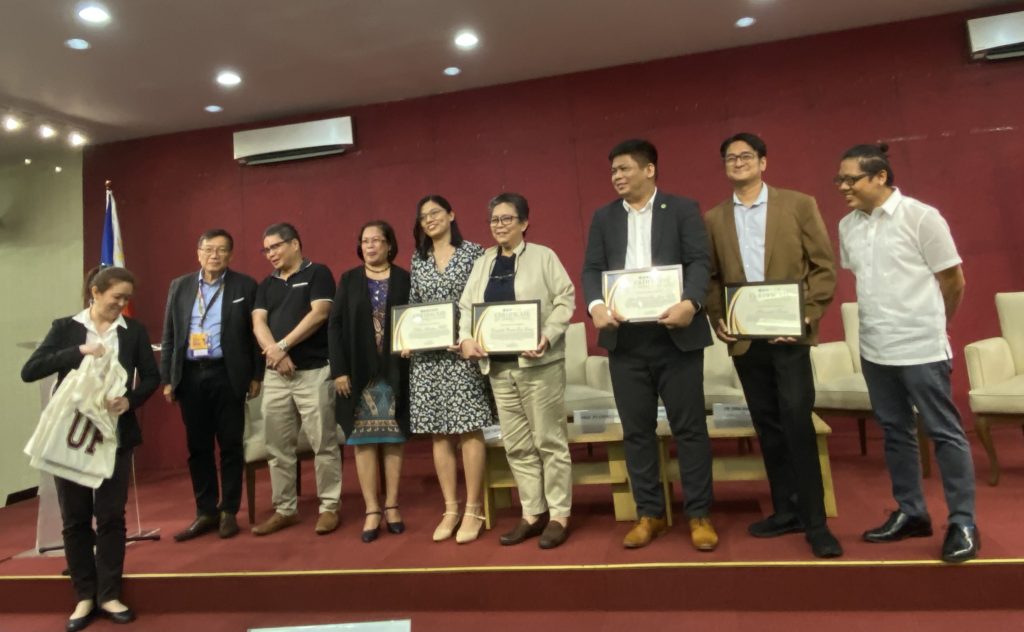
Through collaborations with architects from Taiwan, the award and social movement are now being promoted and adapted to the Philippines. The forum conducted on May 11, 2023 is part of this initiative and was put together by the UP NCPAG Center for Leadership, Citizenship, and Democracy (CLCD) together with the UP School of Urban and Regional Planning (SURP), the Philippine Institute of Environmental Planners National Capital Region (PIEP NCR), and the UP Resilience Institute (UPRI).
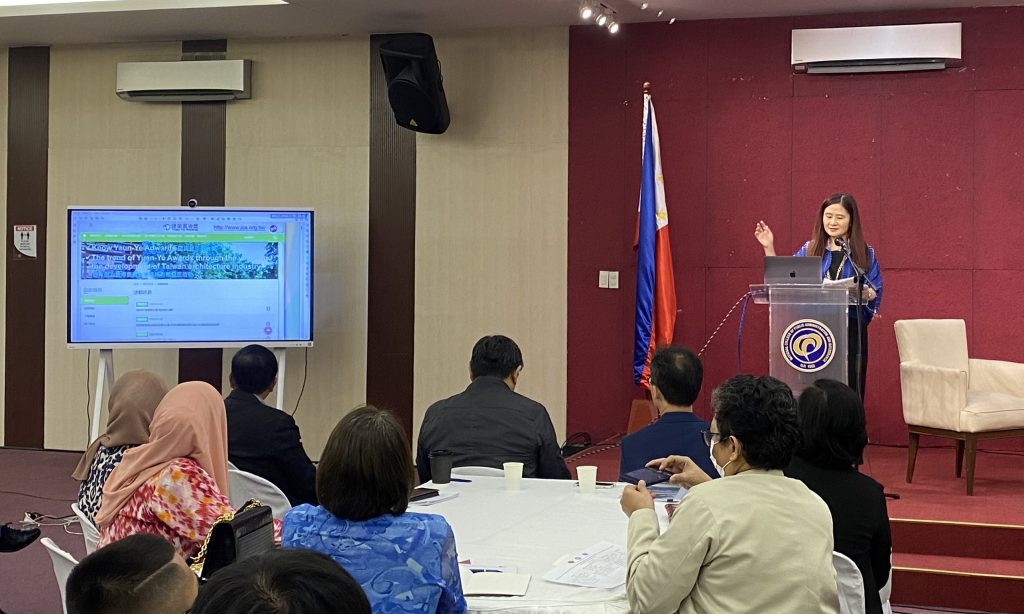
The first speaker was Prof. Kuei-Feng Chang, PhD, Chairperson of the Department of Real Estate Management of the National Pingtung University in Taiwan. She gave a background of the Yuan Ye Architect Awards, emphasizing the importance of giving respect to nature in creating designs. She shared how the award transformed into a social movement that promotes creativity, green building, and local sustainable development.
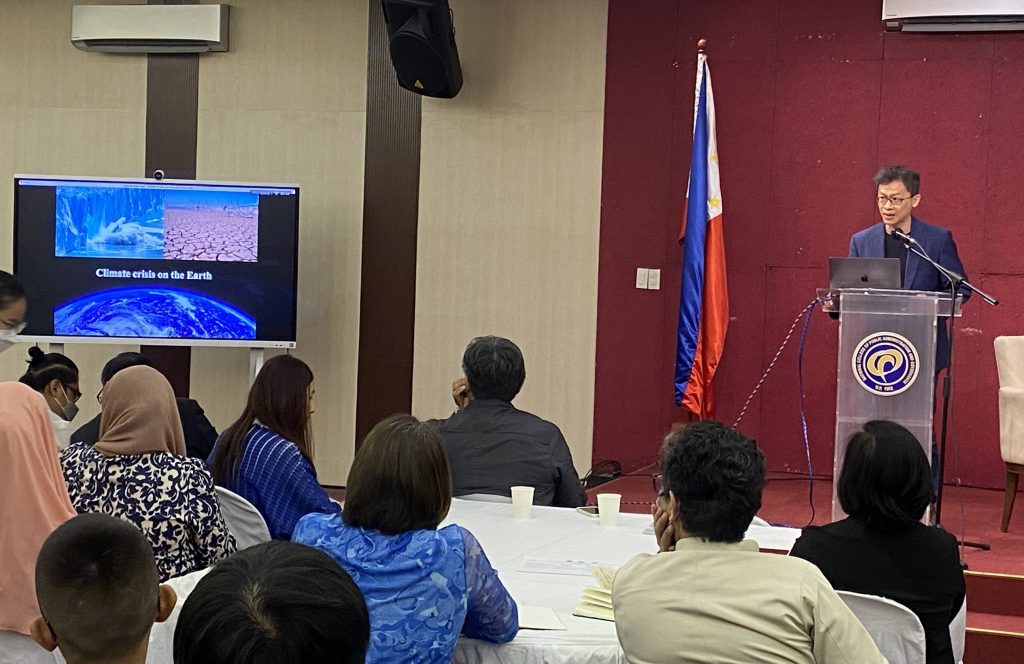
The second speaker was Ray (Ruei-Hong) Tseng, Architect of the RHT Architects and Associates, and Founder of Green Lab Asia (GLA). He shared about “The home next to grandpa tree,” a study of the Asias Architecture Prototype under the changing climate. Architect Tseng stated that we must build sustainably, with consideration to the changing climate, and shared his journey of creating a design that builds around nature by not cutting trees. He lamented that development became synonymous with disappearing forests. Therefore, with his design, he made sure that his team built around the grandpa tree while maintaining the health of the tree, low energy consumption, and aesthetic value.
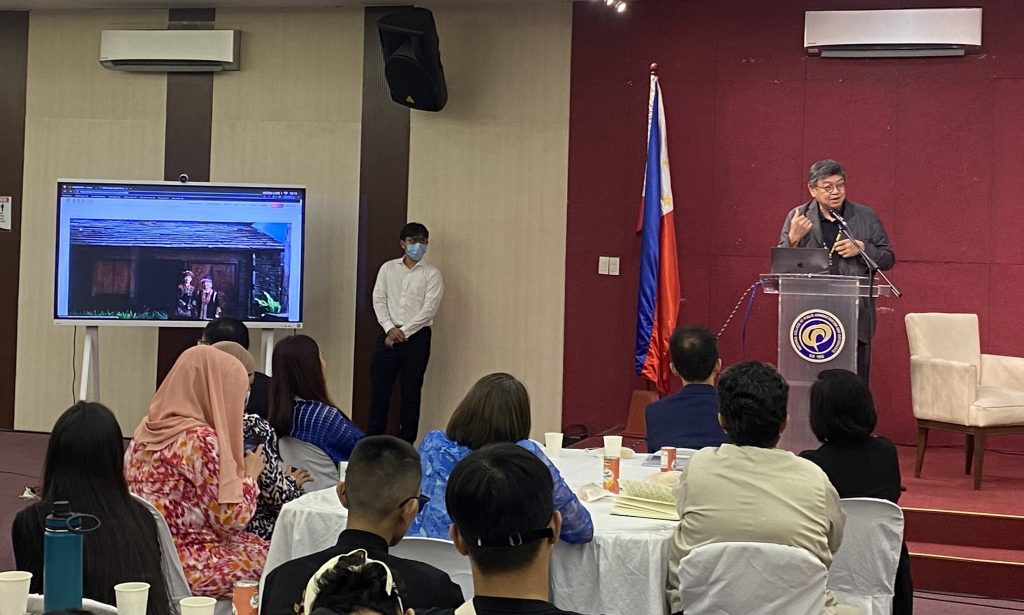
Dr. Po-Cheng (Paul) Chou, an associate professor and former Dean of College of Design in Shu-Te University, was the final speaker. Dr. Chou spoke about the “Indigenous Slate House,” which was a traditional architecture for an indigenous group in their province. These slate houses needed to be modified because it kept the smoke from cooking indoors, which was very unhealthy for the residents. These structures needed to be modified but must be done so with respect to the people’s culture.
All speakers revealed compelling insights on creating spaces that are in harmony with nature, adaptable to the changing climate, and respect the community’s culture and way of living. Following their presentations, representatives from the NCPAG, SURP, UPRI, and PIEP NCR were invited to share their reflections on the presentations.
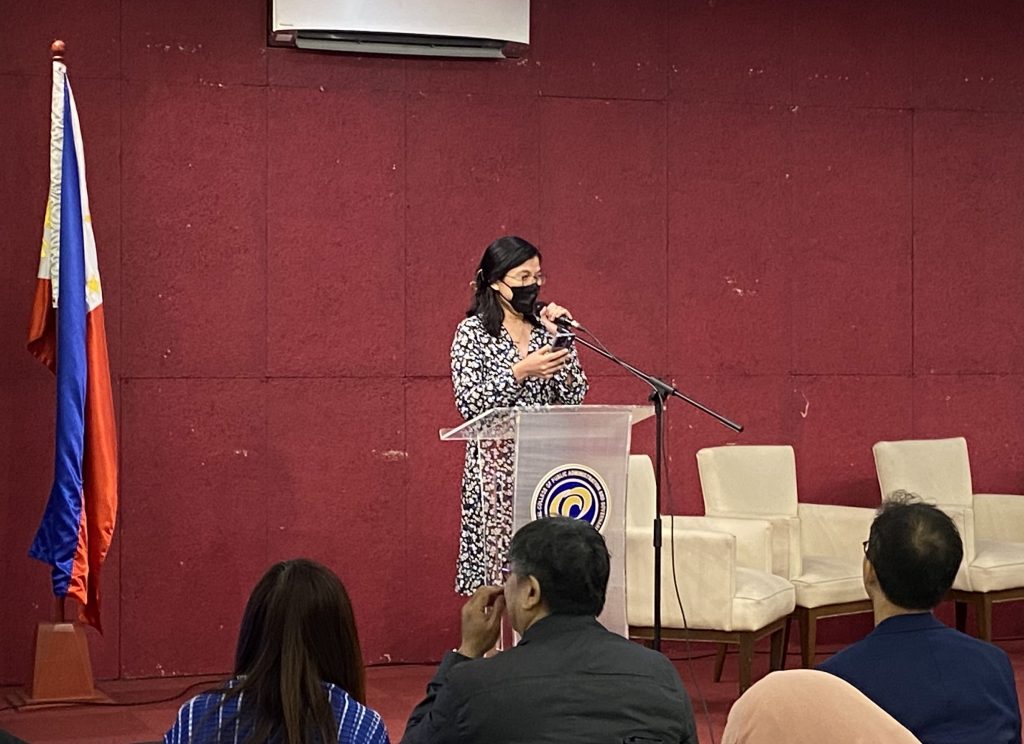
Dr. Likha Minimo, UPRI’s newly-appointed Director of Knowledge Sharing, served as reactor from UPRI. She shared that in our country, we have always built our settlements near the sea or the rivers—for livelihood, for the view, or the basic need for food and water. Despite this, many of our planned developments lie in hazard zones without any hard or soft mitigation measures for tsunamis and similar hazards.
As a geologist, Dr. Minimo shared her hope that we, as a society, with the leadership of urban planners and future Yuan Ye Awardees, will be creative in designs that are adapted to the hazards inherent to the locations we choose to live in. She shared that when she mapped hazard impacts as part of her work in UP NOAH and UPRI, they’d always see schools, churches, and evacuation sites in perilous areas. However, she shared these concerns not to project the lack of hope, but to spur everyone into action. She echoed what Dr. Po-Cheng Chou, one of the speakers, shared: mitigation and sustainability come first.
She hopes that more and more urban planners will be engaged as local and national government partners, expressing that the UPRI will be behind them as they lead in creating more sustainable and resilient infrastructure and development plans. That the UPRI is with them in envisioning communities with people of all ages and genders who will not simply survive day by day but thrive each year in beautiful and livable cities in a world-class and world-serving resilient country.
Posted by the UP Resilience Institute – Education on June 20, 2023
